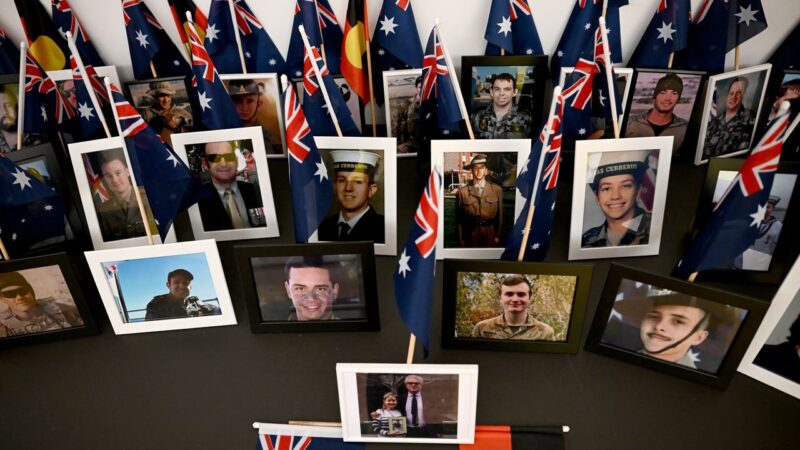Campaigners for the Suicide Royal Commission have slammed a federal government reform bill responding to the landmark inquiry’s first urgent recommendation two years ago as a “threat to ADF capability”. Stuart McCarthy on the “rushed” Senate inquiry.
A week after the final report of the “once in a generation” Defence and Veterans Suicide Royal Commission (DVSRC) was tabled amid lofty speeches in Parliament, controversy has already emerged over the government’s consultation process in overhauling the “not fit for purpose” veteran support system.
Taxpayer-funded lawfare against seriously injured veterans pursuing rehabilitation and compensation claims through a “toxic” veterans’ affairs bureaucracy has been identified as a contributory factor in veteran suicides.
Royal Commission into Veteran Suicide confronts lawfare, cronyism and a bureaucratic nightmare
Documents obtained by MWM now reveal key recommendations from a panel of eminent experts convened by Veterans’ Affairs Minister Matt Keogh last year were largely ignored during the drafting of a Veteran Entitlements, Treatment and Support (VETS) Bill now under scrutiny in the Senate.
The report from the Legal and Other Experts Consultation Group was sent to Keogh in April this year, identifying eight “key issues” to address an earlier “legislation consultation pathway” that comprised the government’s response to DVSRC’s August 2022 interim recommendation,
to urgently develop a “new legislative model.
The DVSRC interim report criticised the current “byzantine” system and recommended against “incremental piecemeal change.” The reform bill that emerged from the government’s “consultation pathway” instead proposes to retain the most complex and adversarial of the three existing legislative acts and omits most of the consultation group’s key recommendations to Keogh.
Simon Hill @DVAAus Assistant Secretary Legislation Reform, reassuring Senate FADT Legislation Committee chair @SenRaffCiccone on Friday that the VETS Bill consultation forums held by #auspol Veterans’ Affairs Minister @mattkeogh across the country did not identify “systemic or… pic.twitter.com/uCELaJKSax
— Stuart McCarthy (@StuartMcCarthy_) September 14, 2024
Keogh’s consultation group included Australian National University’s Emeritus Professor Robyn Creyke AO, Flinders University’s Professor Ben Wadham and several other experts, including University of New England’s Adjunct Professor Bernadette Boss. Dr Boss served as the Interim National Commissioner for Defence and Veteran Suicide Prevention before being controversially dumped by the Morrison government in 2021.
 Loading...
Loading...
“A band-aid”
One member of the group, Slater and Gordon’s Brian Briggs told MWM the VETS Bill “is a rushed through, band-aid job … that doesn’t address fundamental problems the [group] recommended be fixed.”
Briggs wrote to Keogh in April to reinforce several of the group’s recommendations in a letter highlighting:
The proposed legislative reform does not go far enough to ensure our military service men, women, and veterans have access to justice in a simple and straightforward manner.
Keogh has not responded to MWM’s request for comment on his consultation group’s report, or concerns their recommendations were disregarded.
Briggs and others are now seeking to testify to the Senate legislation committee inquiry into the bill chaired by Labor’s Raff Ciccone and set to wind up by 3 October, after a submission deadline set the day after the DVSRC final report was published last week.
In his written submission to the inquiry, Briggs criticises an apparent “priority to rush this legislation through parliament, ignoring many of the recommendations from interested stakeholders,” and says “the current Bill will not simplify veterans entitlements but result in more uncertainty for the veteran community.”
Breach of contract?
Key veteran advocates who long campaigned for the DVSRC’s establishment, some of whom have since been labelled as “security threats” in an alleged vendetta by the former intelligence officer who heads the Veterans Affairs department’s security section, say the VETS Bill constitutes a “breach of contract” between defence personnel, the government and the public.
They cite a keynote speech delivered by Army Chief Lieutenant General Simon Stuart last Thursday at the land warfare expo that drew protests in Melbourne. Stuart said defence personnel accept they have a contract of “unlimited liability,” but last week’s DVSRC report “should give us pause to reflect” on how well the nation is meeting its obligation to ‘honour the commitment’ for all who serve in the defence force.”
Veterans Affairs refers unlawful spying investigation to … its HR department
Stuart’s testimony to the DVSRC’s final hearing in March included an emotional apology, admitting defence chiefs have “failed along the way” in supporting personnel vulnerable to suicide. Sources have told MWM that Stuart is a proponent for genuine institutional reform to improve the well-being of defence personnel and veterans and is “untainted” by Defence’s recent scandals and cover-ups.
MWM spoke to several advocates who made written submissions highly critical of the VETS Bill to Ciccone’s inquiry and are now also hoping to testify at public hearings before it concludes.
Former paratrooper Martin Rollins, a target of veterans’ affairs lawfare and “bureaucratic bastardry” exposed by the ABC in 2018 and among those labelled as a “security threat” for his public advocacy, says the bill was written by unaccountable public servants, not party to the contract described by Stuart. He told MWM:
The VETS Bill poses the single biggest threat to Australian Defence Force capability, by undermining recruitment and retention, and threatening the destruction of the defence service contract.
Veteran advocate Julie Anderson says the VETS Bill “is not a new model at all … it’s not fundamental reform and would result in many veterans being worse off,” pointing out that the inherent complexity and adversarial nature of the existing laws is being retained in the so-called reform bill. She told MWM, “It’s crucial for this inquiry to hear from veteran advocates on the ground who know what the problems are.”
Aside from the @DVAAus bureaucrats who drafted the “band-aid bill”, @SenRaffCiccone‘s inquiry has thus far heard from a sum total of three witnesses (RSL, TPI Fed, Legacy), who all publicly opposed the establishment of the @roycommDVSRC that recommended a “new legislative model.”… https://t.co/qw0wqvquzt pic.twitter.com/kyGZwDtbgi
— Stuart McCarthy (@StuartMcCarthy_) September 16, 2024
In a statement to MWM, Ciccone says the VETS Bill “delivers on the Albanese Government’s commitment to implement the first recommendation of the Royal Commission’s interim report,” emphasising his inquiry has held two public hearings involving “representative organisations of the veteran community including RSL Australia, Legacy Australia and the TPI Federation of Australia.”
The RSL, Legacy and TPI Federation all publicly opposed the campaign to establish the DVSRC. Not one advocate who supported the years-long campaign has been called to testify.
The statement from Ciccone also says “it is not practical for Senate committees to call every individual or organisation who makes a written submission to attend an in-person hearing,” and emphasises his inquiry’s reporting date is “a matter determined by the Senate.”
Ciccone is also the deputy government whip in the Senate.
During the early years of the campaign to establish the DVSRC, the Turnbull government committed more than a billion dollars to a so-called veteran-centric reform program with the explicit aim of avoiding legislative reform. Almost $80 million in consulting fees alone were paid to PwC, the big four firm at the centre of the tax leaks scandal.
Julie-Ann Finney, whose petition signed by 400,000 members of the public ultimately convinced the Morrison government to establish the inquiry in 2021, has publicly called for every MP and Senator to oppose the VETS Bill, vowing to continue the fight with the government to properly reform the “broken” veterans’ affairs system “for however long is necessary.”
“But Now He’s Dead”: bittersweet reaction to Royal Commission into Veteran Suicide
Stuart McCarthy is a medically retired Australian Army officer whose 28-year military career included deployments to Afghanistan, Iraq, Africa, Indonesia and Papua New Guinea. Stuart is an advocate for veterans with brain injury, disabilities, drug trial subjects and abuse survivors. Twitter: @StuartMcCarthy_

